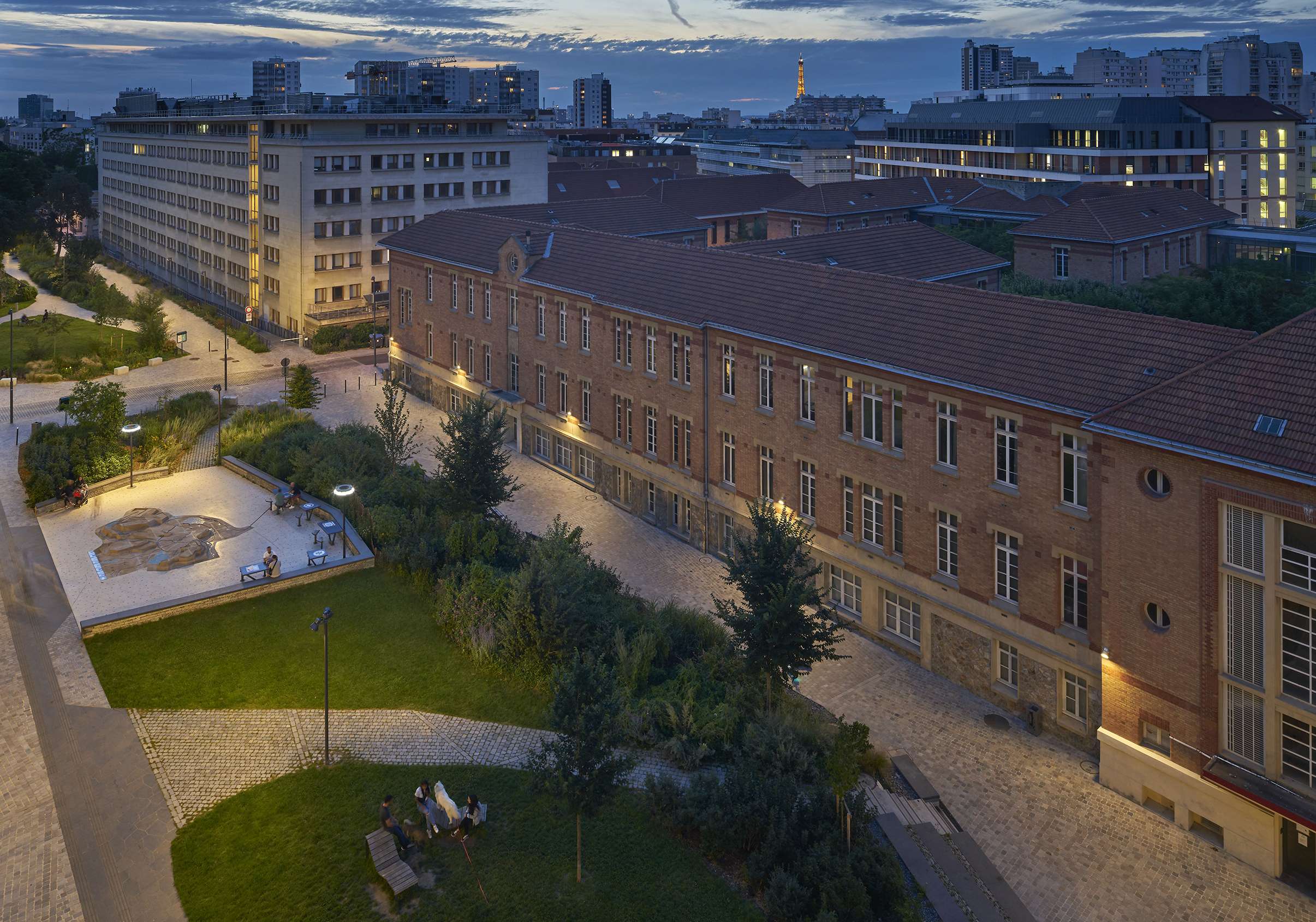
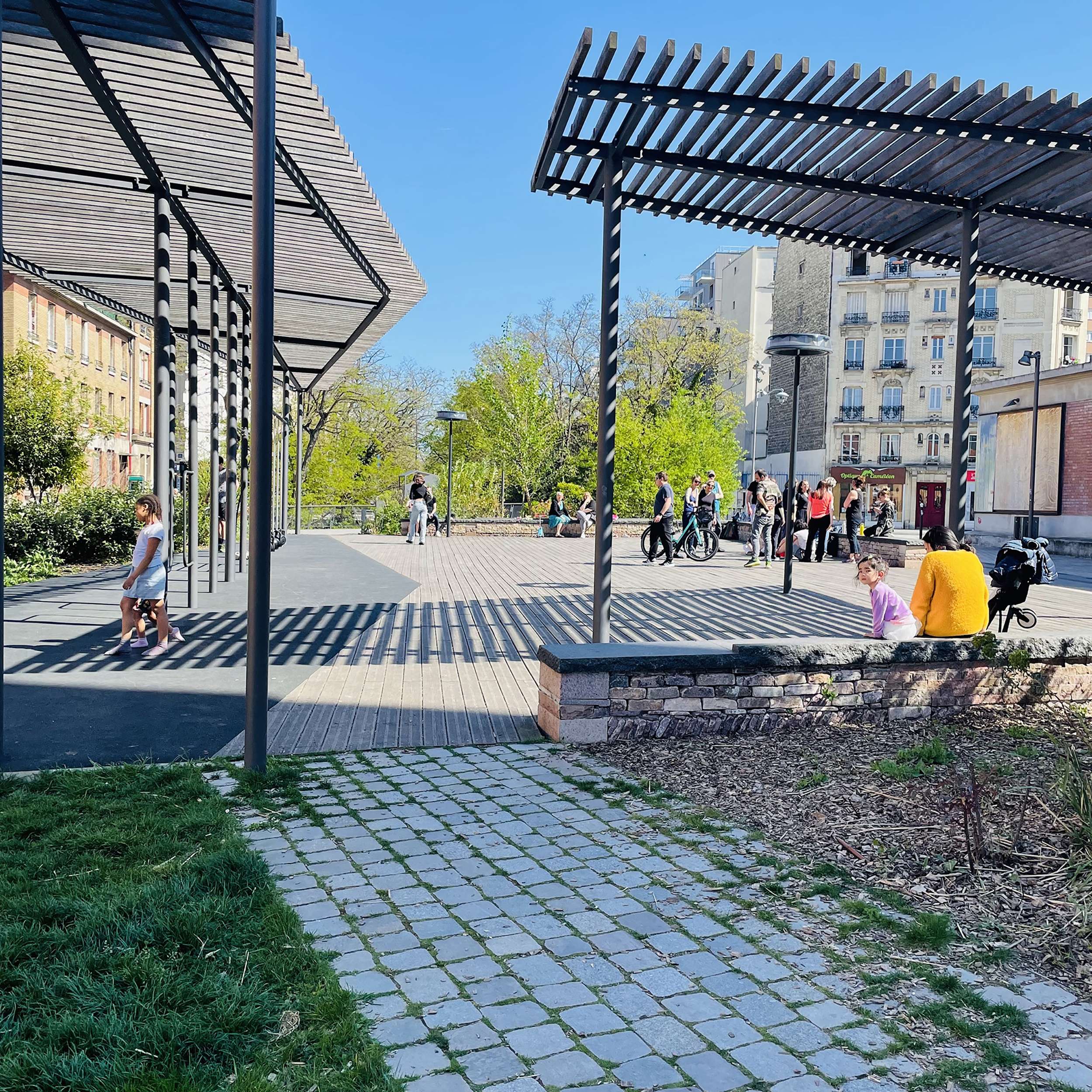
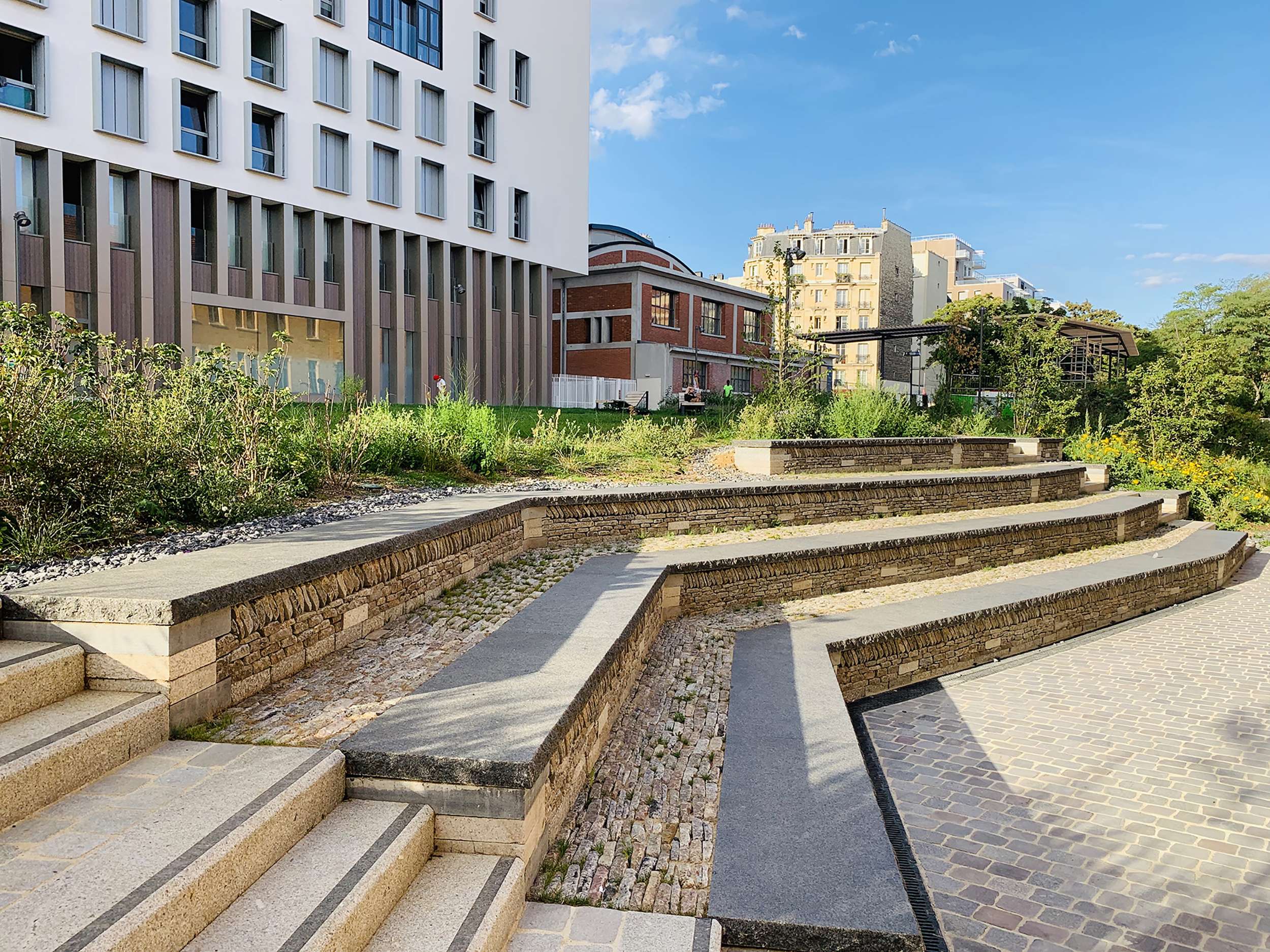
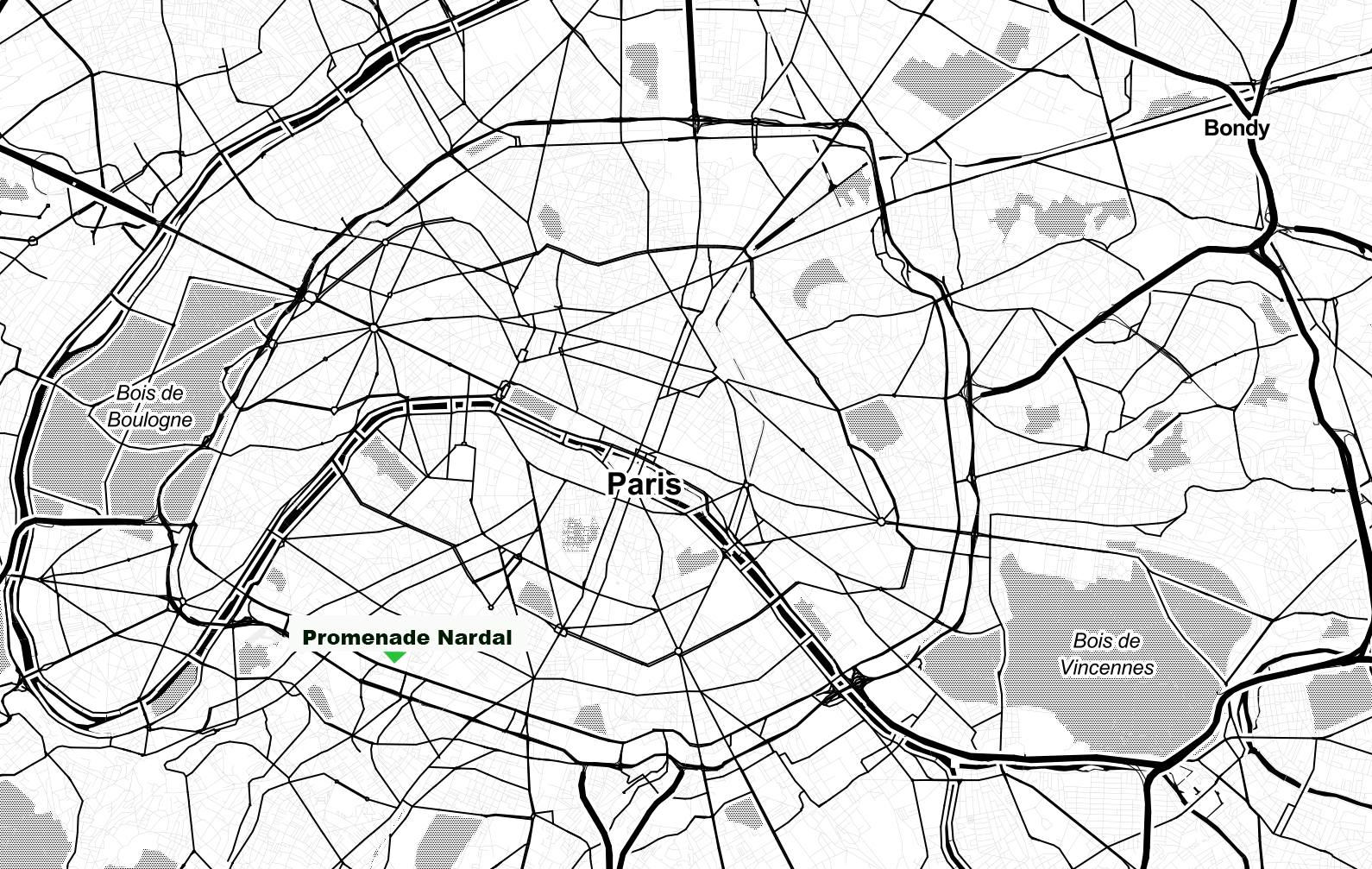
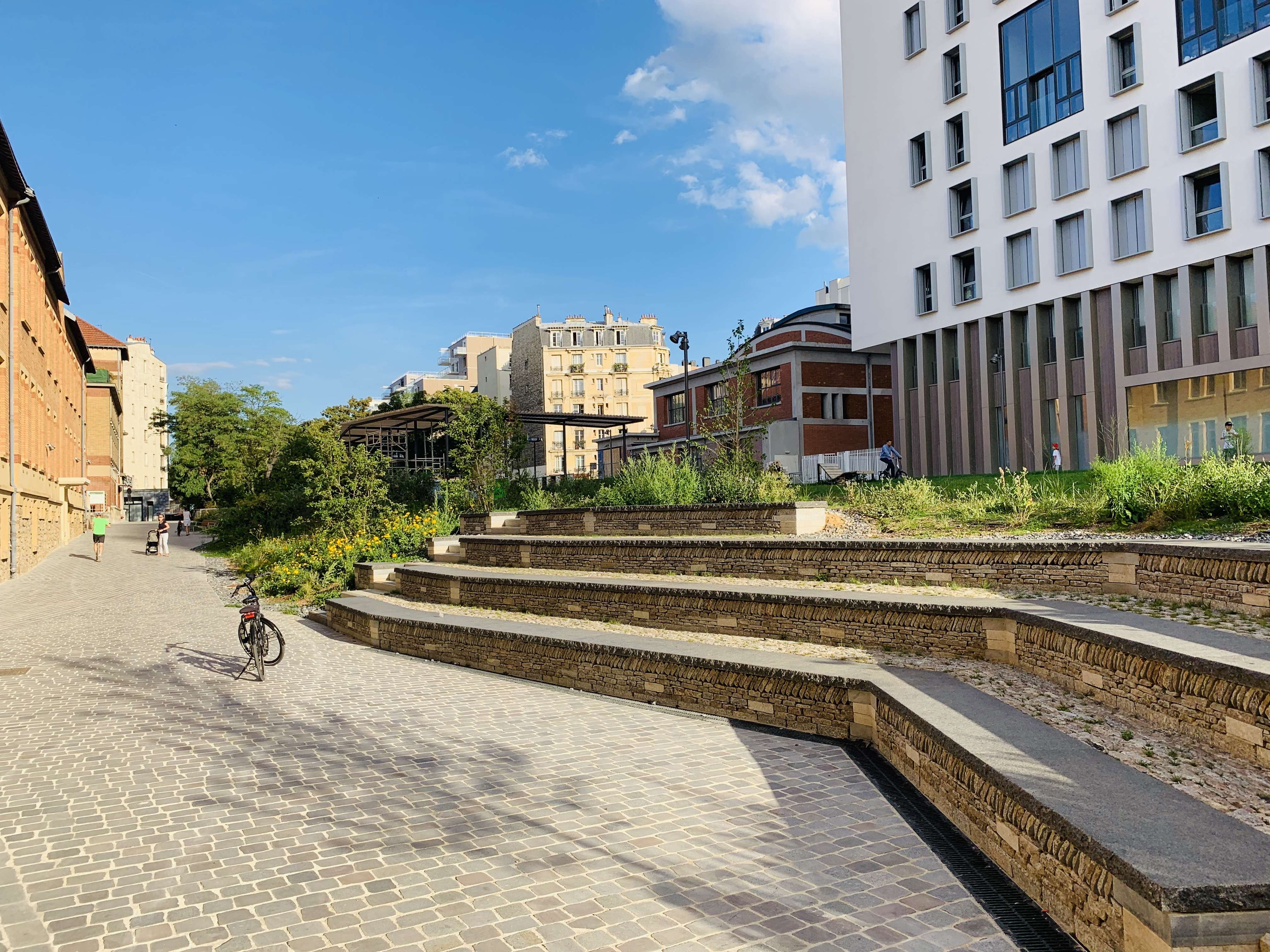
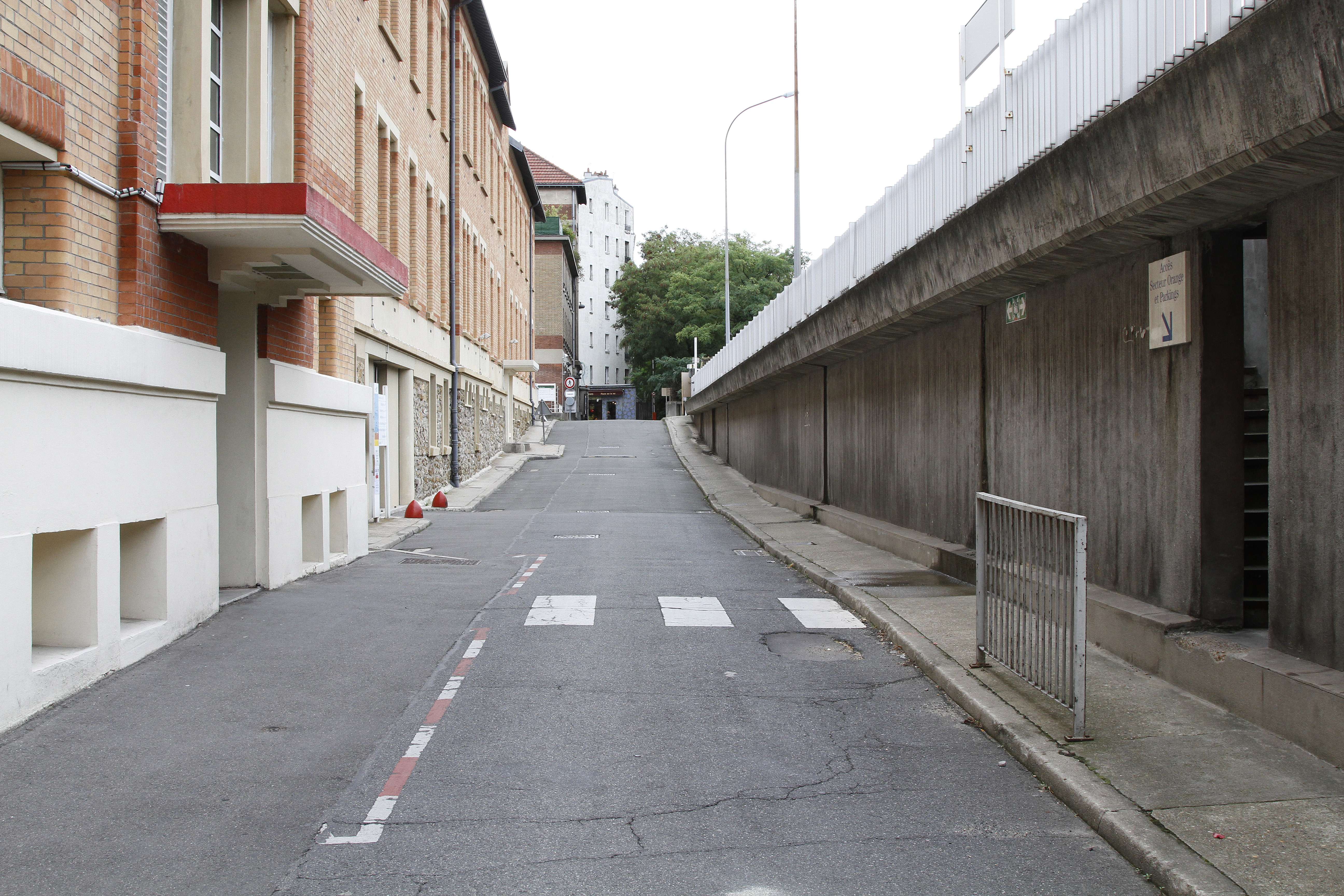

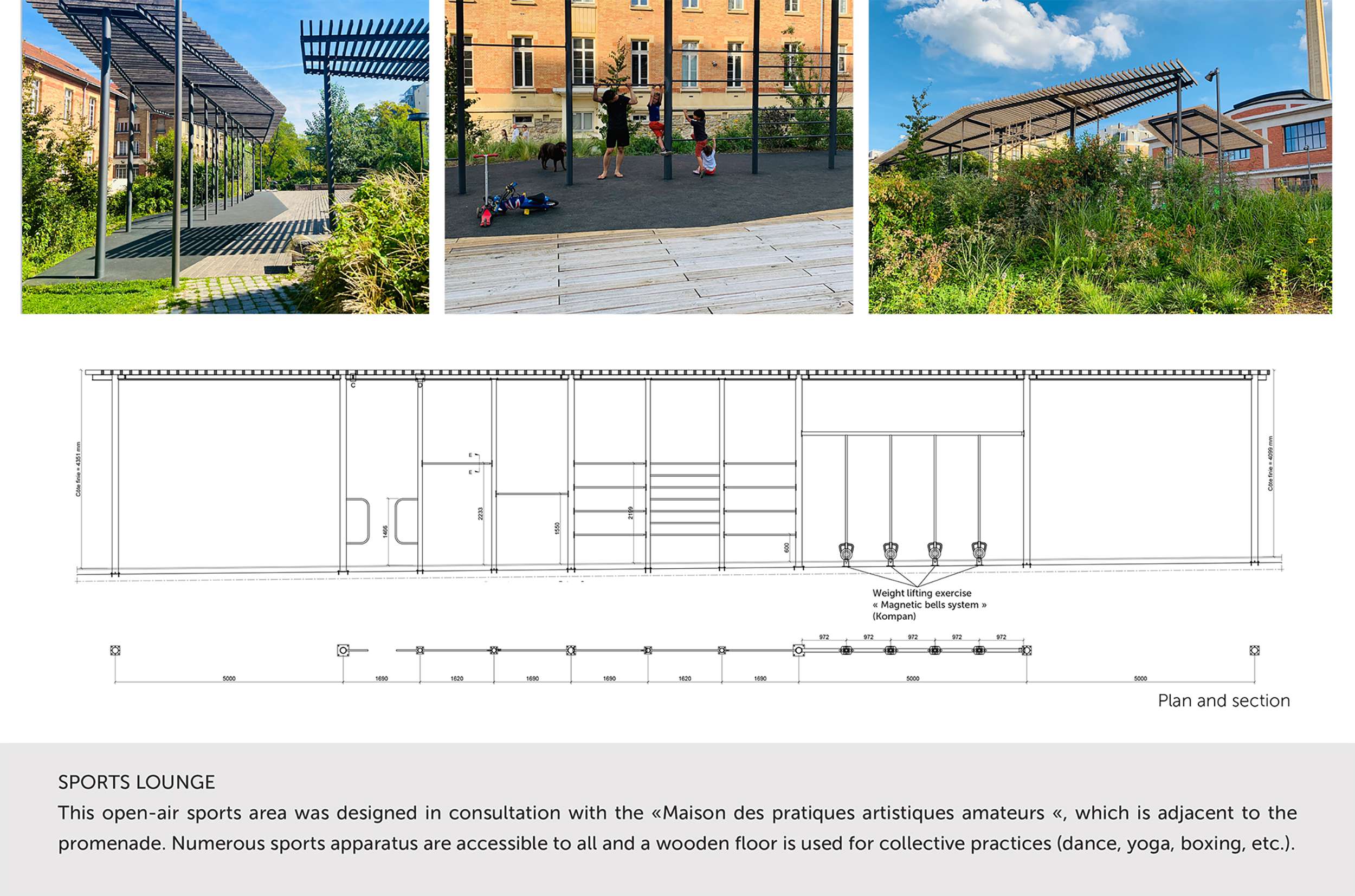
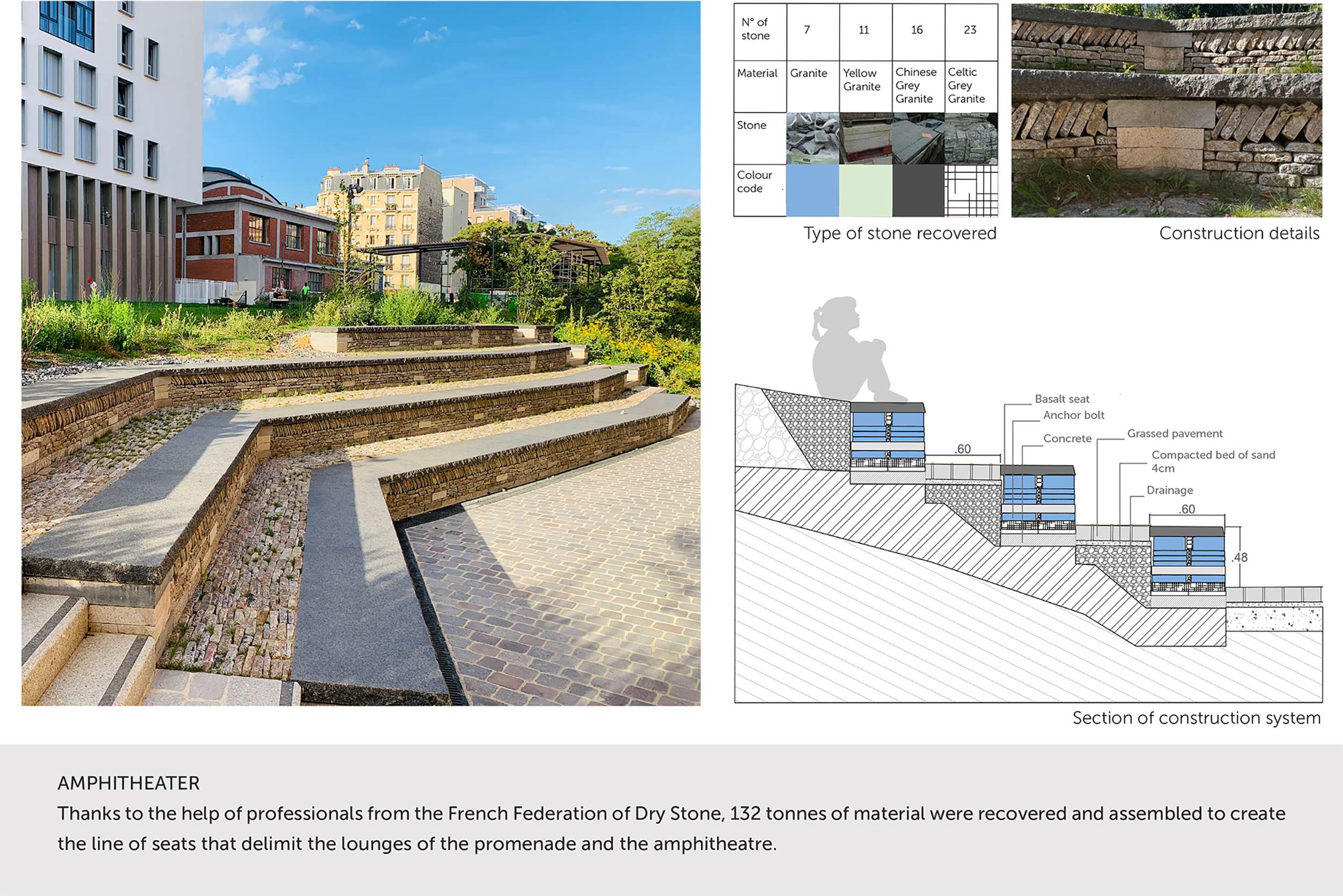
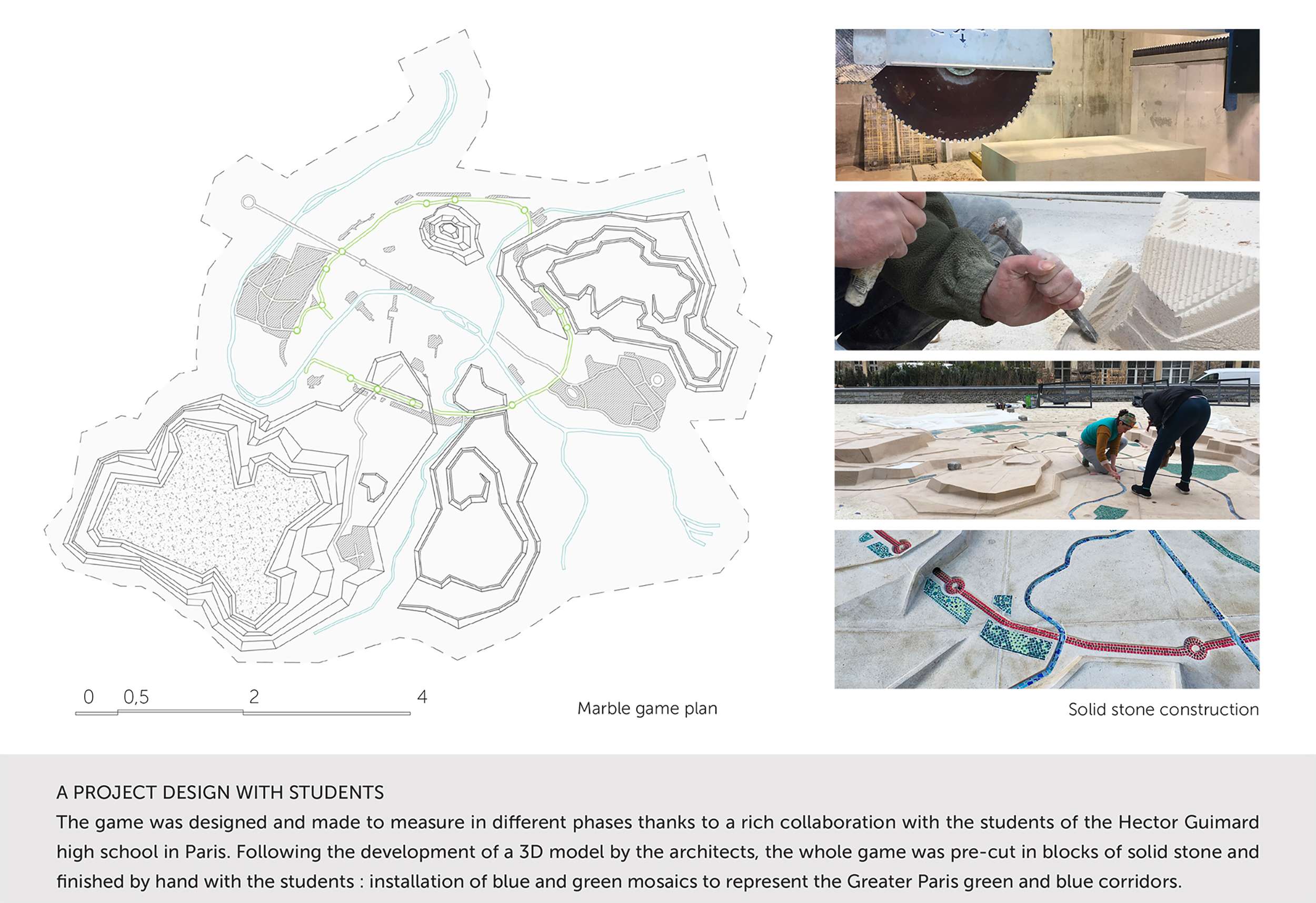
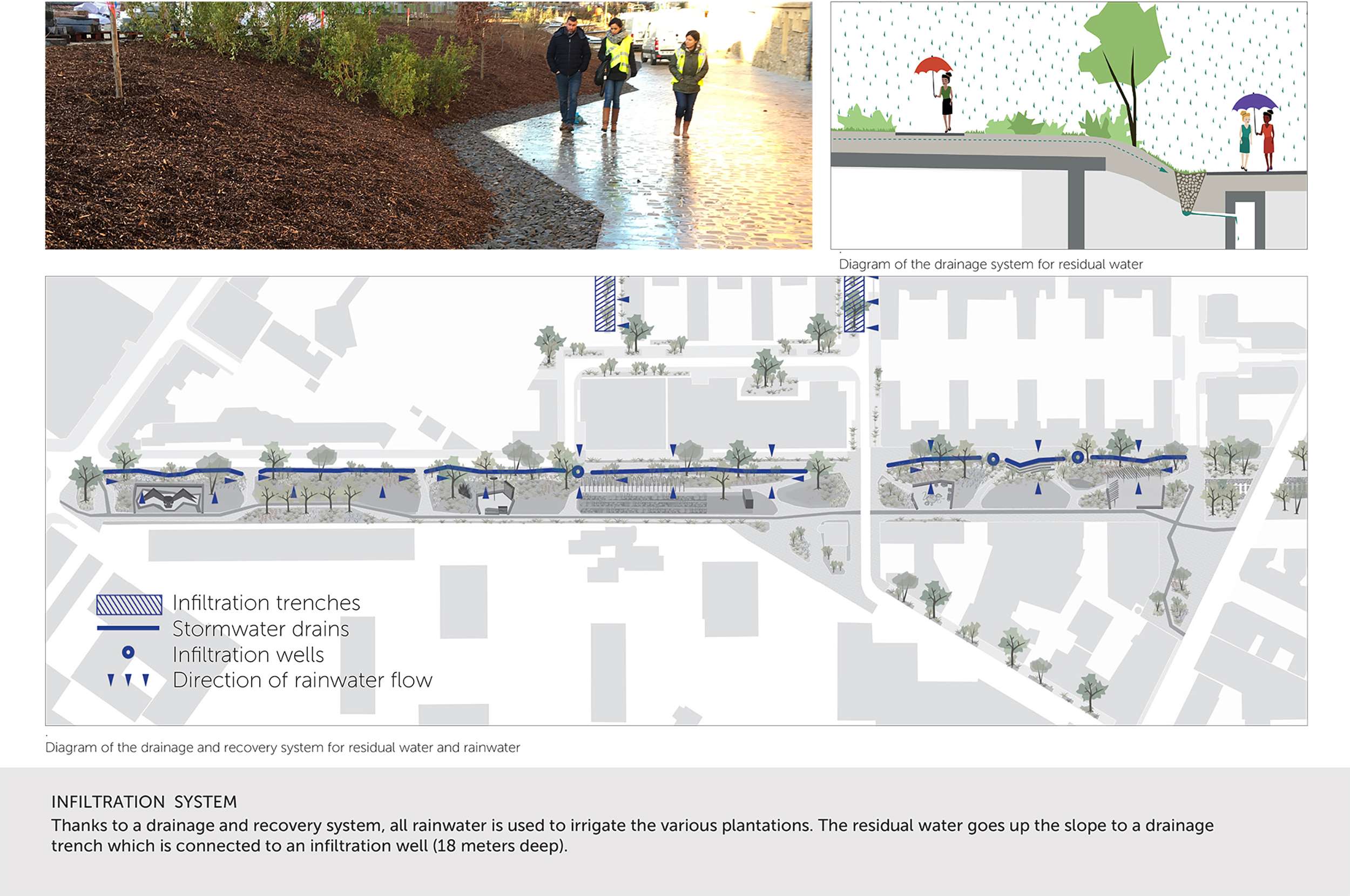
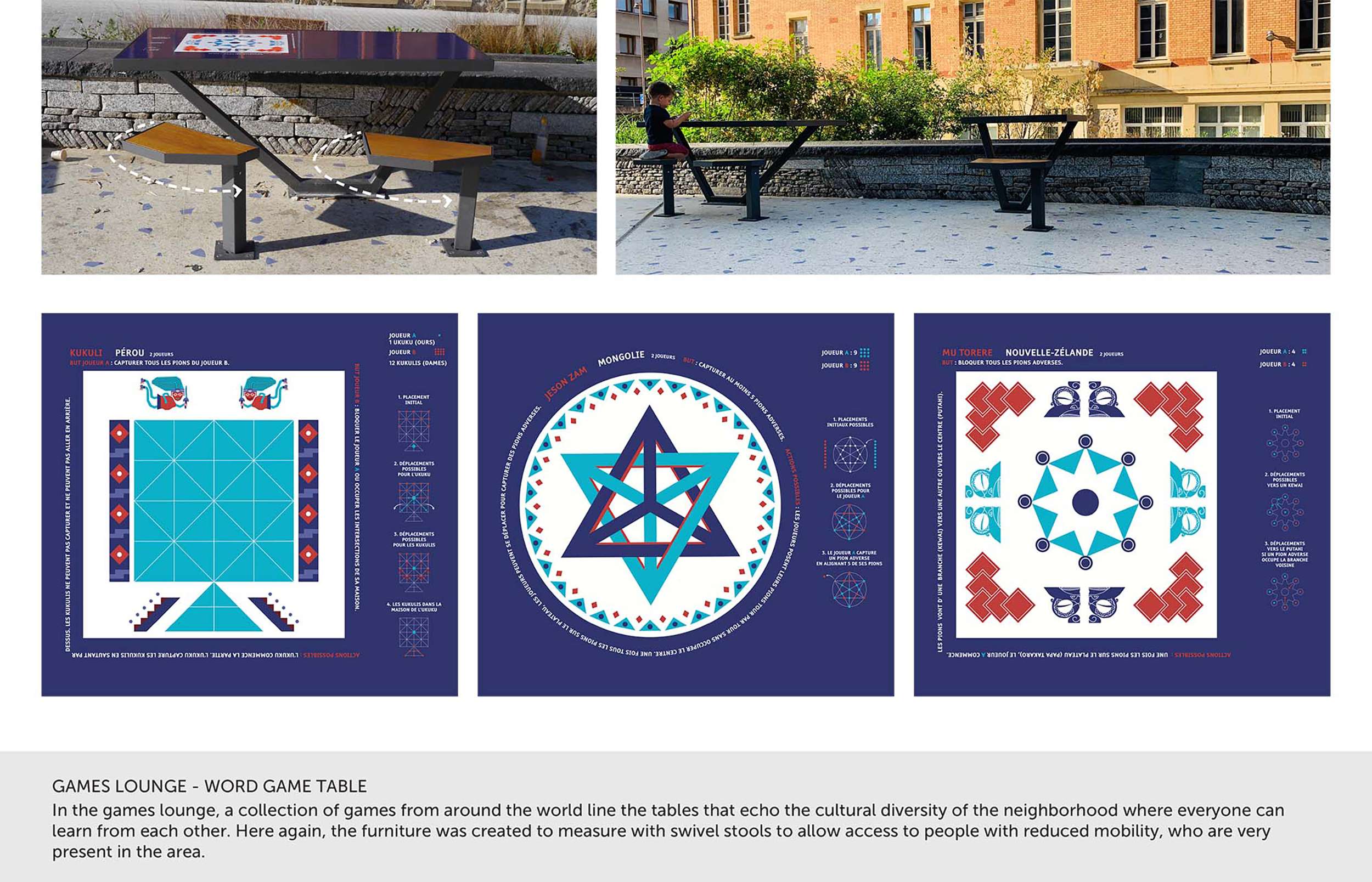
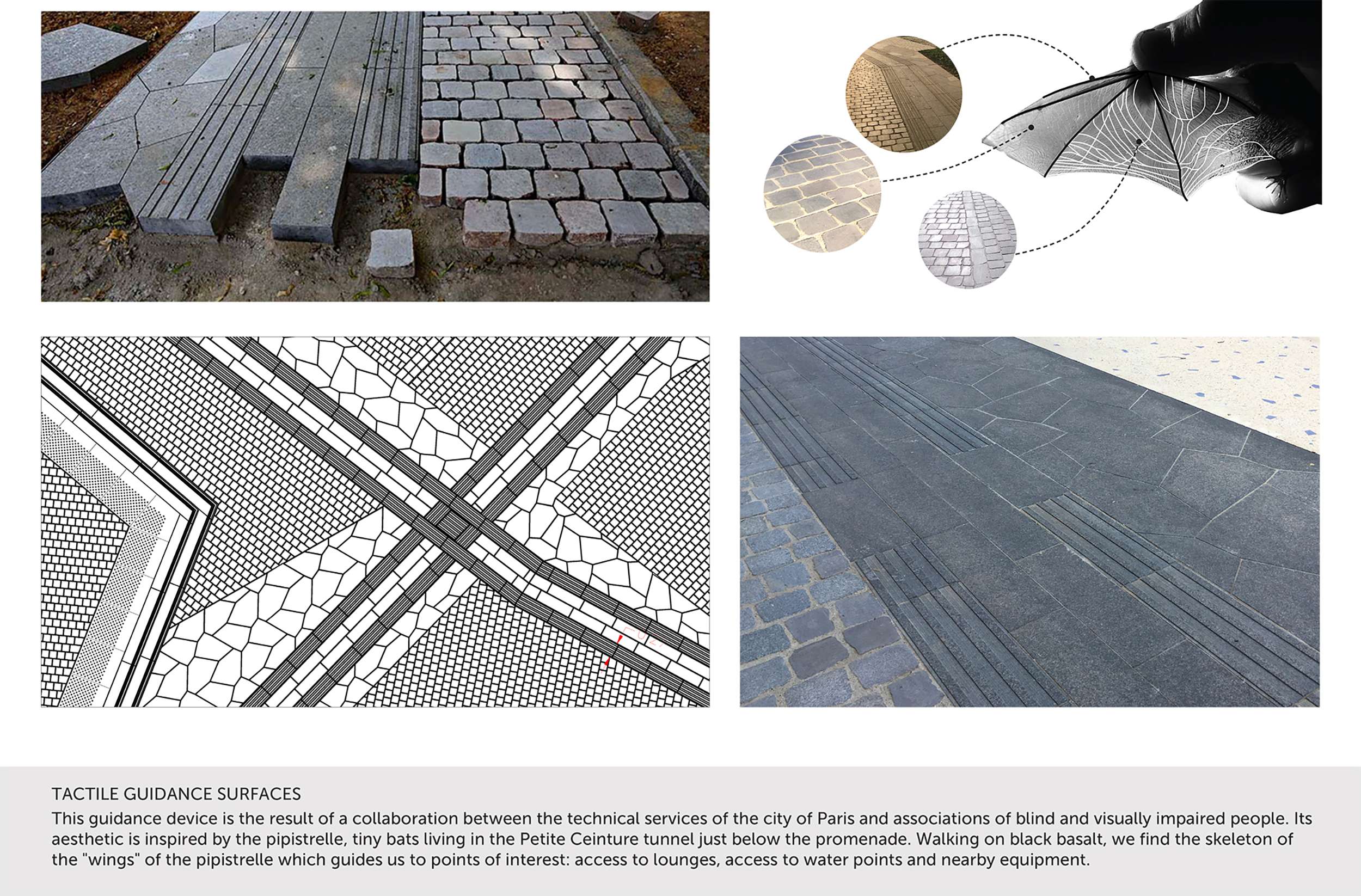

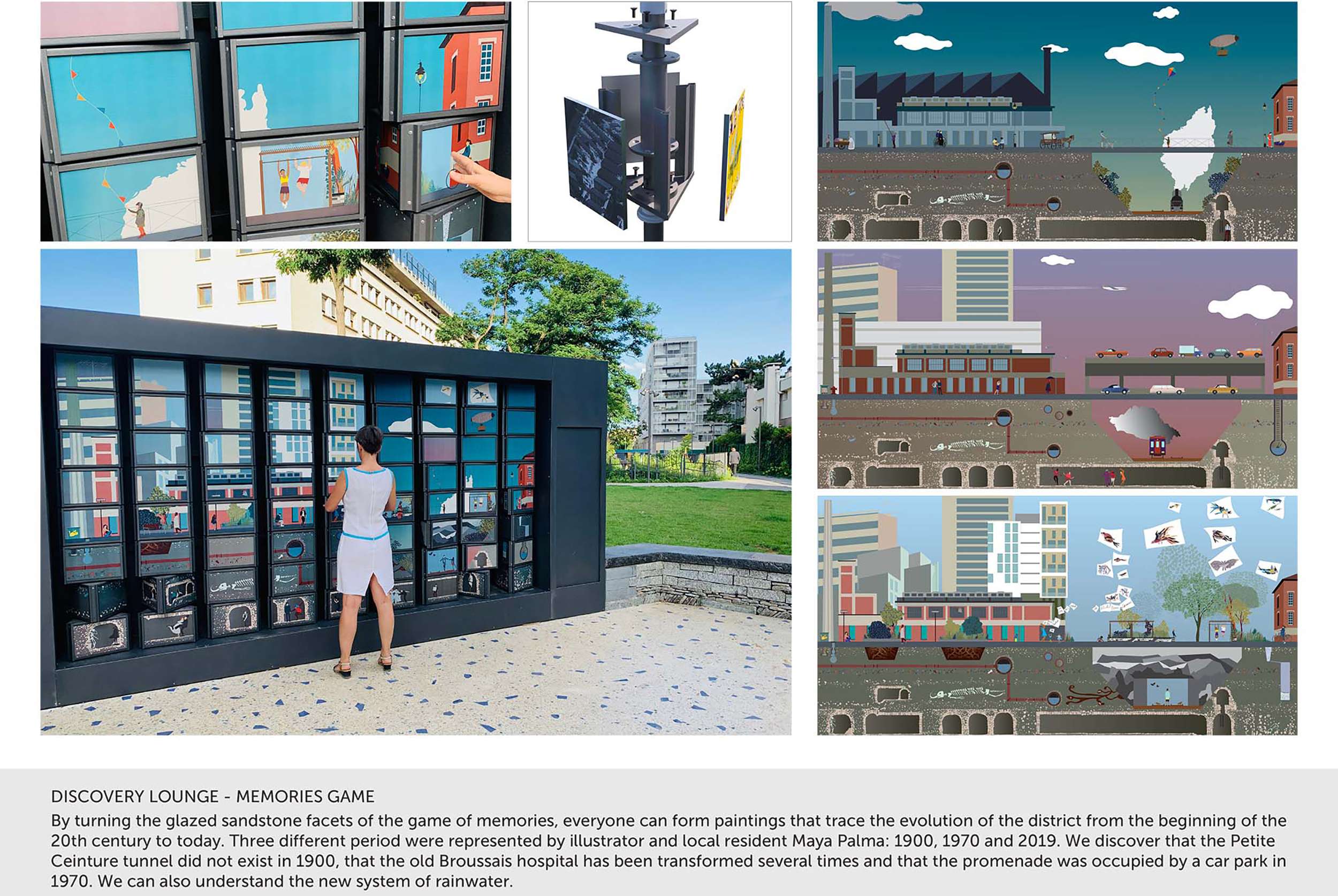
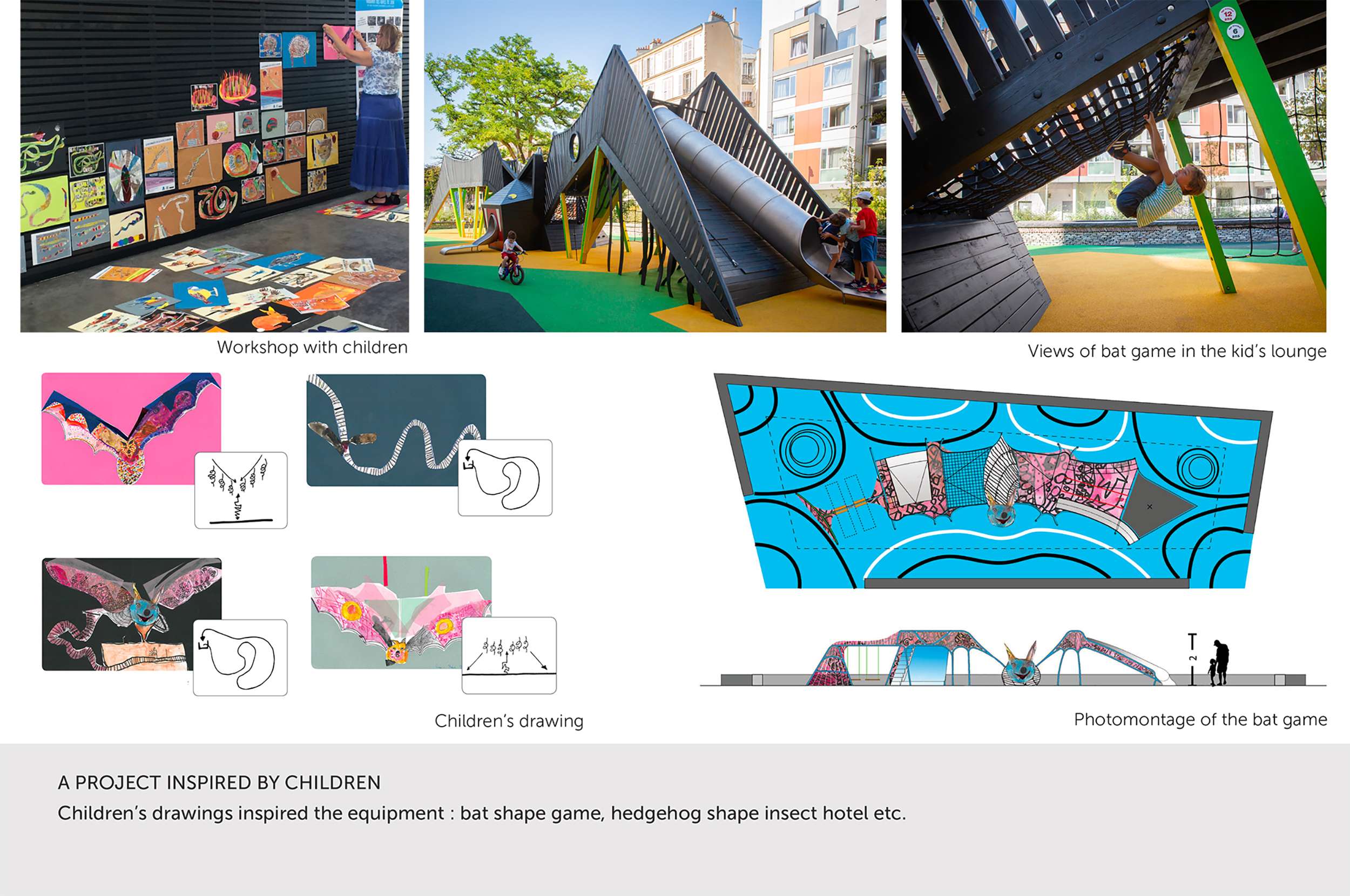
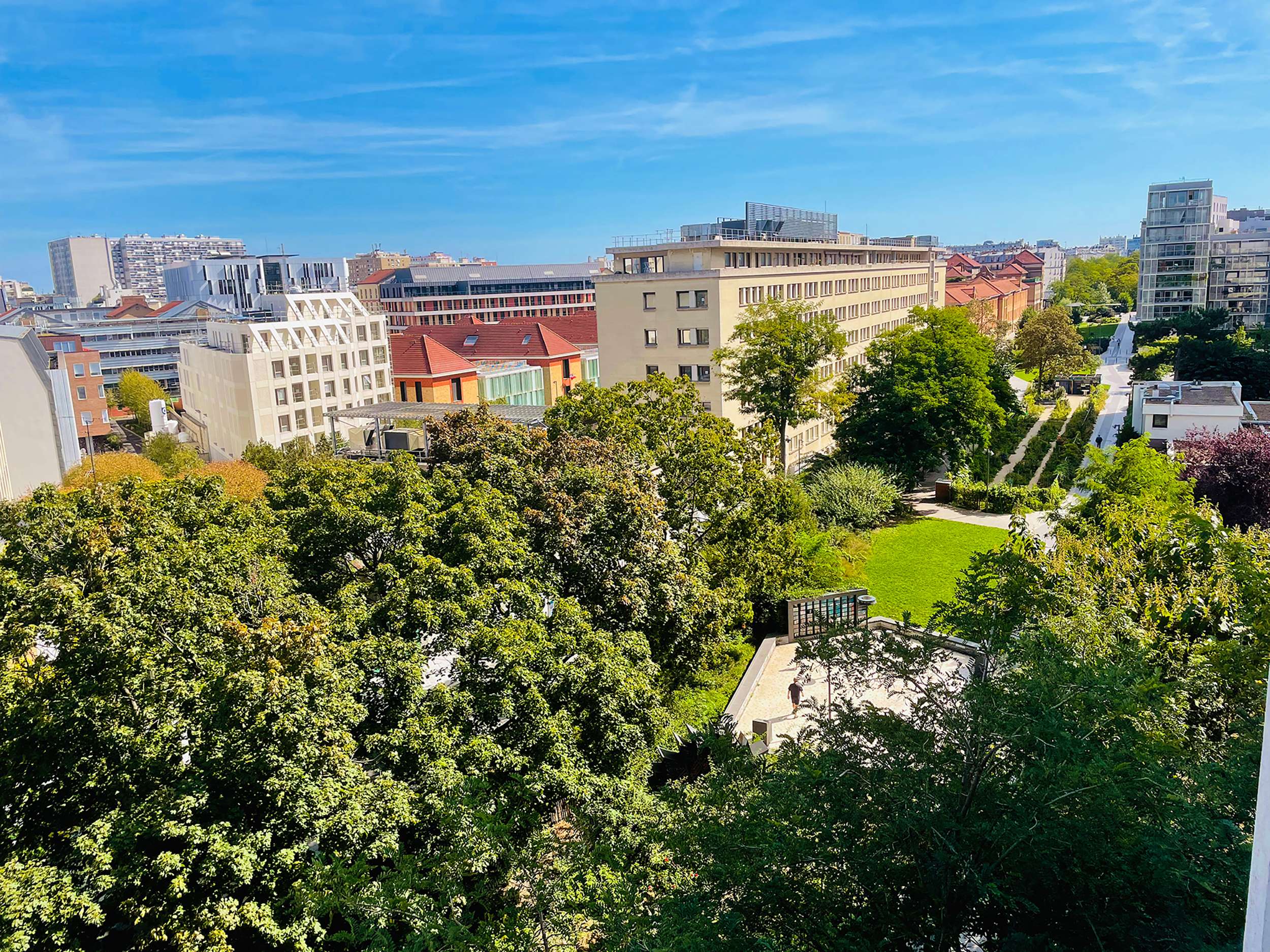
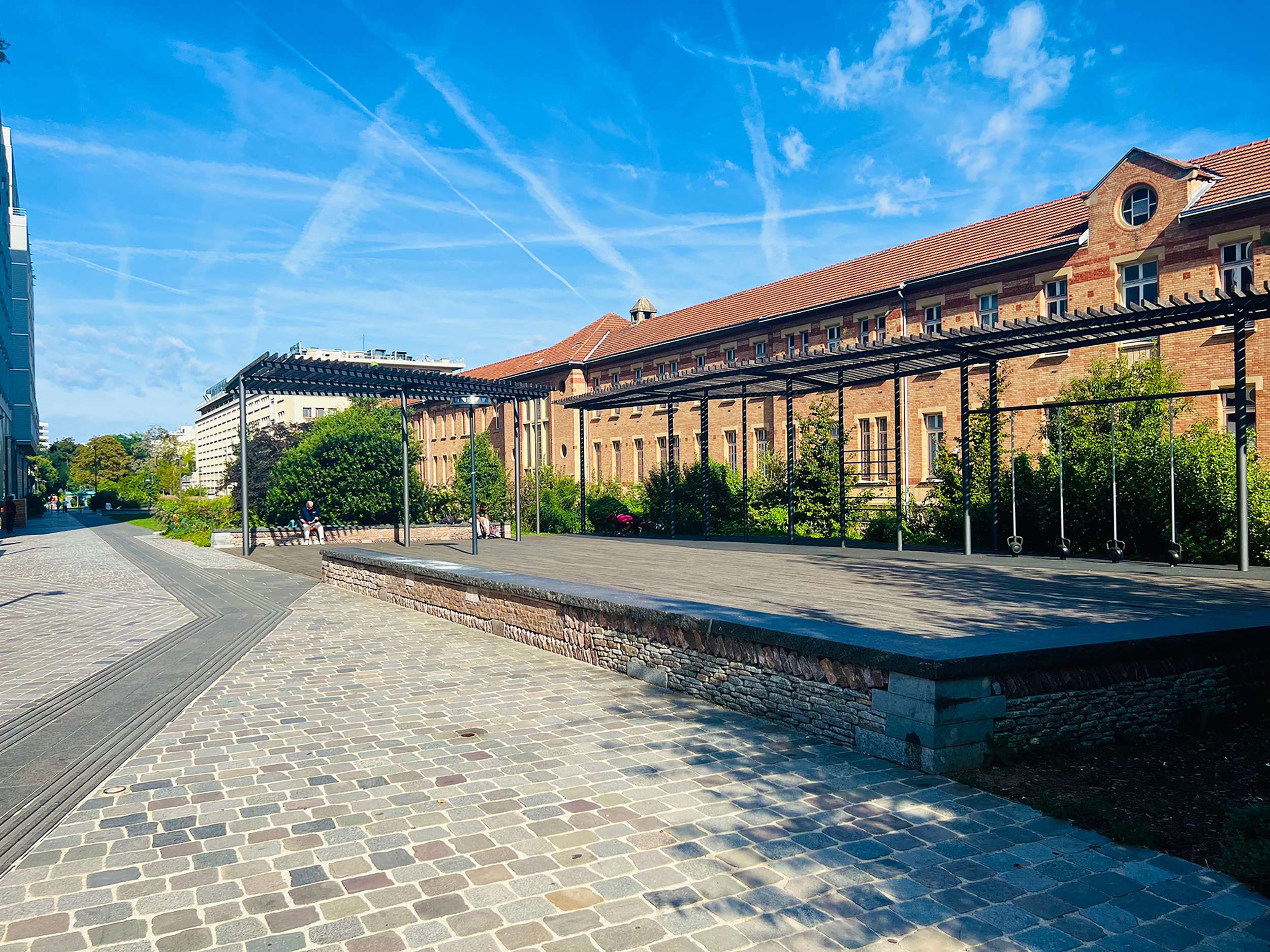
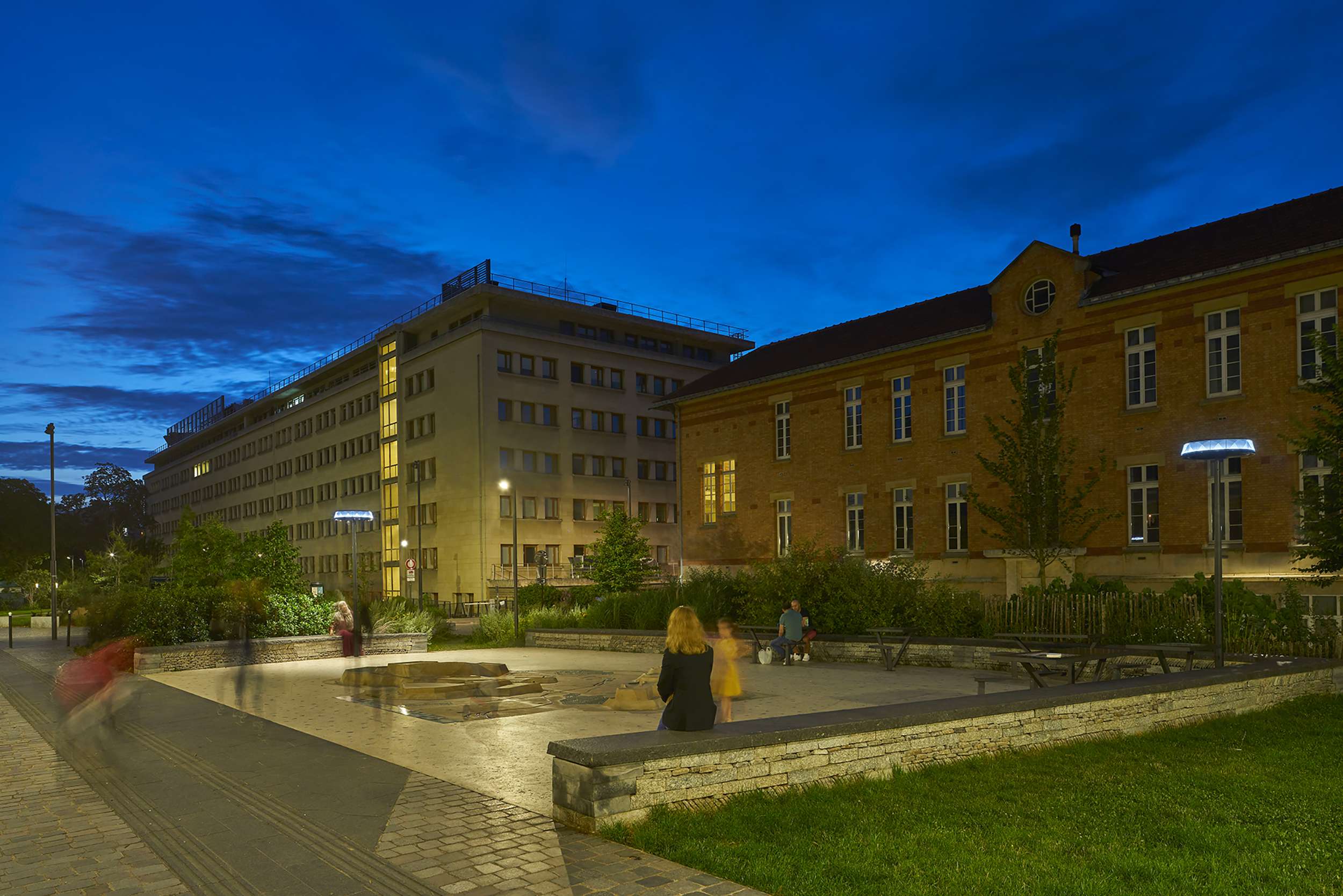
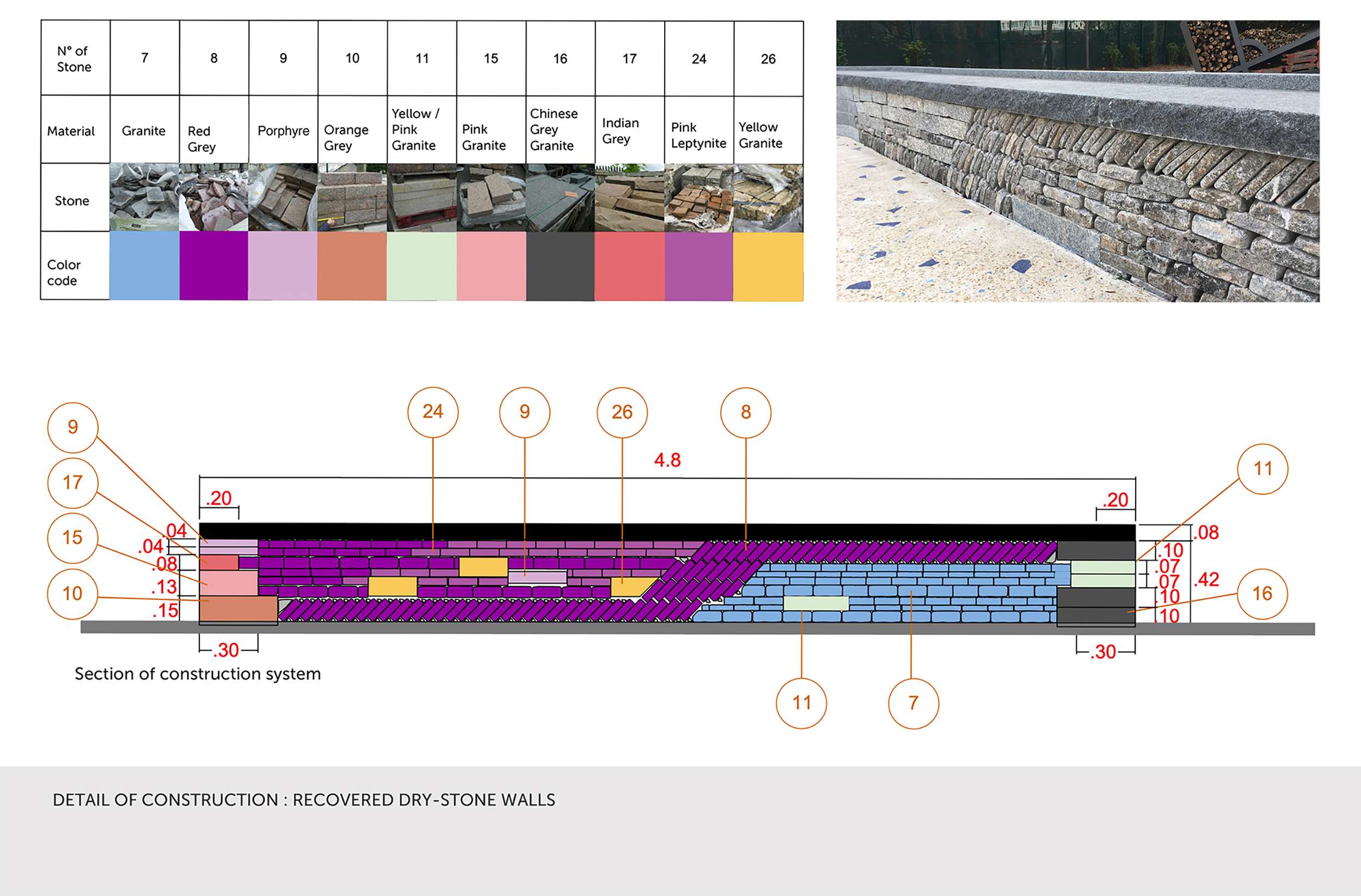
Nardal_Promenade_Paris
The promenade Nardal
« Promenade Nardal »
Located in the 14th arrondissement of Paris, the “Nardal planted promenade” is an ambitious and experimental project linking density, nature and culture. The project consists of creating an urban space that connect the new district with older ones and to encourage greater social diversity. The involved local actors have been mobilized for 9 years to contribute to its success by imagining an ambitious program that integrates social and ecological innovations.The promenade is located on the site of a former hospital and above a tunnel of an obsolete railway infrastructure, which is home to the largest urban colony of pipistrelles (a protected species of bat) in Europe. Atelier Nous landscape designers have drawn the whole thread of the project based on this specificity, in order to meet the aesthetic, technical, ecological and social requirements.
Urban program : accessibility for all people
Different atmospheres punctuate the walk and encourage appropriation through multiple practices which are every-users friendly. As you walk along, five major spaces are gradually revealed: one shared garden and four lounges. Each one of these lounges hosts a different programmatic function based on discovering biodiversity and conviviality between neighbours across the ages :
- The " Kid’s lounge " offers games for children from 3 to 12 years old, designed with the children of the Pierre Larousse school. This playground features a monumental bat that offers games (climbing, slide, etc.) and relaxation areas (giant hammocks). This allows each child to test himself, even in a wheelchair. A physical relationship of learning and discovery is established between this mammal and the children.
- The "Discovery Lounge" is an ideal place to organise events between neighbours. It is full of information about the site, its inhabitants and the history of the neighbourhood. In this sense, it has a memory game and a public shared library,a large work table and a bat detector. Everyone can inform themselves, learn and share around adapted games and furniture.
- The "Games lounge" offers a journey around the world and Greater Paris. It includes game tables from around the world and a gigantic marble game about green and blue corridors of Geater Paris.
- The “Sports lounge", a form of open-air sports hall, was designed in consultation with the “Maison des pratiques artistiques amateurs”, which is adjacent to the promenade. The lounge has a number of sports equipment accessible to all and an open space for exercises and other group practices (dance, yoga classes, etc.).
Along the way and in the middle of the promenade stands a shared garden. A central space that hosts a service and tool exchange. The shared garden is also an information point for all walkers.
A collaborative design process
The project design process is collective. He has formed an authentic experimental laboratory for future public spaces. The elaborated ideas and systems have been recognized as major innovations, particularly in terms of inclusiveness and accessibility for all.Everyone contributed by sharing ideas and know-hows. The city's representatives and municipal services agreed to experiment this collective approach throughout the all process, from programming to design to construction.
This dynamic brought innovation in many areas. The collaboration with educational institutions was for instance developed through several forms. Thanks to their drawings, schoolchildren took part in the design of several pieces of furniture inspired by existing fauna, such as the bat game in the children's lounge or the insects hotel in the discovery lounge. High school students also created the gigantic marble game that highlights the Greater Paris green and blue corridors. Other unique collaborations have led to singular pieces such as a memory game retracing the site’s history through drawings made with a local artist. Similarly, associations for the visually impaired, helped by start-ups, have created a sound guidance system for the promenade as well as a tactile map of the area.
Finally, the landscape designers have also put the French stone federation in contact with the municipal services, allowing to reintroduce a traditional French know-how able to respond to actual ecological issues. The promenade is also based on a metabolic system of available matter : rainwater and tons of reused stone belonging to the City of Paris.In addition, it has led to the development of inclusive devices allowing accessibility to everyone without discrimination.
Key figures :
240 000 paving stone be re-used
230 meters in dry-stone construction
2000 m2 in backfill made of recycled materials
8097 m2 in permeable surface
This project has been a one of a kind process to trigger innovative systems in France. It currently is the only one of such a scale to have been designed collectively with inhabitants, schools, associative structures, as well as start-ups and various professionals. This unprecedented process finally showcases the exceptional potential of collective intelligence conceiving an urban project.
Everyone contributed by sharing ideas and know-hows. The city's representatives and municipal services agreed to experiment this collective approach throughout the all process, from programming to design to construction.
